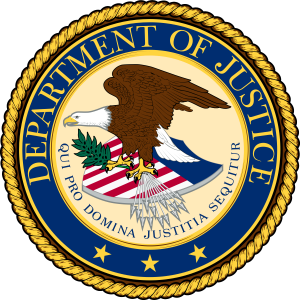 The 2020 election will be unprecedented in many respects. More people will be voting by mail, and there will likely be more democratic participation online than ever before. Internet platforms and communication services will become more influential forums as people are restricted from in-person conventions and debates. But even before the pandemic pushed these operations online, some lawmakers were already seeking to monitor misinformation in political discourse on the internet, specifically in the context of deepfakes. Deepfakes are manipulated photo, video or audio clips generated by computers, often with the assistance of artificial intelligence algorithms. They can make someone appear to say or do something that never actually happened or create realistic images of people who do not exist.
The 2020 election will be unprecedented in many respects. More people will be voting by mail, and there will likely be more democratic participation online than ever before. Internet platforms and communication services will become more influential forums as people are restricted from in-person conventions and debates. But even before the pandemic pushed these operations online, some lawmakers were already seeking to monitor misinformation in political discourse on the internet, specifically in the context of deepfakes. Deepfakes are manipulated photo, video or audio clips generated by computers, often with the assistance of artificial intelligence algorithms. They can make someone appear to say or do something that never actually happened or create realistic images of people who do not exist.
Articles Tagged with Section 230
EARN IT Act Amendments Could Shift Section 230 Protection from DOJ Guideline Compliance to Post Hoc Enforcement Regime
 It has been a little more than a month since the Department of Justice (DOJ) made their formal recommendations to lawmakers on how to limit the scope of the broad immunity given to interactive computer service companies, i.e., social media and tech companies, under Section 230 of the Communications Decency Act of 1996. Originally, the drafters of the Eliminating Abusive and Rampant Neglect of Interactive Technologies Act of 2020 (EARN IT Act) led by Sen. Lindsey Graham intended to comply with the DOJ’s request by structuring the bill as a series of amendments to Section 230 that would turn the legal shield into an incentive-based protection. Essentially mirroring category one of the DOJ report, the original incentive system of the EARN IT Act would have meant that an interactive computer service company would only receive Section 230 immunity from civil liability for illicit content posted by a site’s users if the company took affirmative steps to ensure that its site was not facilitating the dissemination of child sex abuse materials.
It has been a little more than a month since the Department of Justice (DOJ) made their formal recommendations to lawmakers on how to limit the scope of the broad immunity given to interactive computer service companies, i.e., social media and tech companies, under Section 230 of the Communications Decency Act of 1996. Originally, the drafters of the Eliminating Abusive and Rampant Neglect of Interactive Technologies Act of 2020 (EARN IT Act) led by Sen. Lindsey Graham intended to comply with the DOJ’s request by structuring the bill as a series of amendments to Section 230 that would turn the legal shield into an incentive-based protection. Essentially mirroring category one of the DOJ report, the original incentive system of the EARN IT Act would have meant that an interactive computer service company would only receive Section 230 immunity from civil liability for illicit content posted by a site’s users if the company took affirmative steps to ensure that its site was not facilitating the dissemination of child sex abuse materials.
Social Distancing, Social Media and Section 230: DOJ Calls On Internet Companies to Provide Safer Online Communities
 In this time of social distancing, working from home and school closures, people and businesses are relying on the internet more than ever to engage with friends, family, clients, consumers and the public at large. Social media and content-sharing websites are providing individual communities and the entire nation with 24/7 accessibility to forums for public discourse, communication and the dissemination of news.
In this time of social distancing, working from home and school closures, people and businesses are relying on the internet more than ever to engage with friends, family, clients, consumers and the public at large. Social media and content-sharing websites are providing individual communities and the entire nation with 24/7 accessibility to forums for public discourse, communication and the dissemination of news.
Twibel Warfare: To Retweet or Not to Retweet Is Still the Question
 Earlier this month, we discussed the ways in which companies should navigate negative critiques and reputation management in the Age of Social Media. One option includes the pursuit of litigation, often demonstrated through claims for defamation. This course of action can typically be found in the context of a negative review: a company provides a service, customer is unhappy with the service, customer posts negative review about company online. In California, a company that wishes to claim said review has crossed a line must then prove (1) the customer made a false, defamatory statement concerning the company, (2) the customer made an unprivileged publication to a third party, (3) the publisher of the false statements acted at least negligently in its publication, and (4) the statement had a natural tendency to injure or cause special damage.
Earlier this month, we discussed the ways in which companies should navigate negative critiques and reputation management in the Age of Social Media. One option includes the pursuit of litigation, often demonstrated through claims for defamation. This course of action can typically be found in the context of a negative review: a company provides a service, customer is unhappy with the service, customer posts negative review about company online. In California, a company that wishes to claim said review has crossed a line must then prove (1) the customer made a false, defamatory statement concerning the company, (2) the customer made an unprivileged publication to a third party, (3) the publisher of the false statements acted at least negligently in its publication, and (4) the statement had a natural tendency to injure or cause special damage.
 Internet & Social Media Law Blog
Internet & Social Media Law Blog


